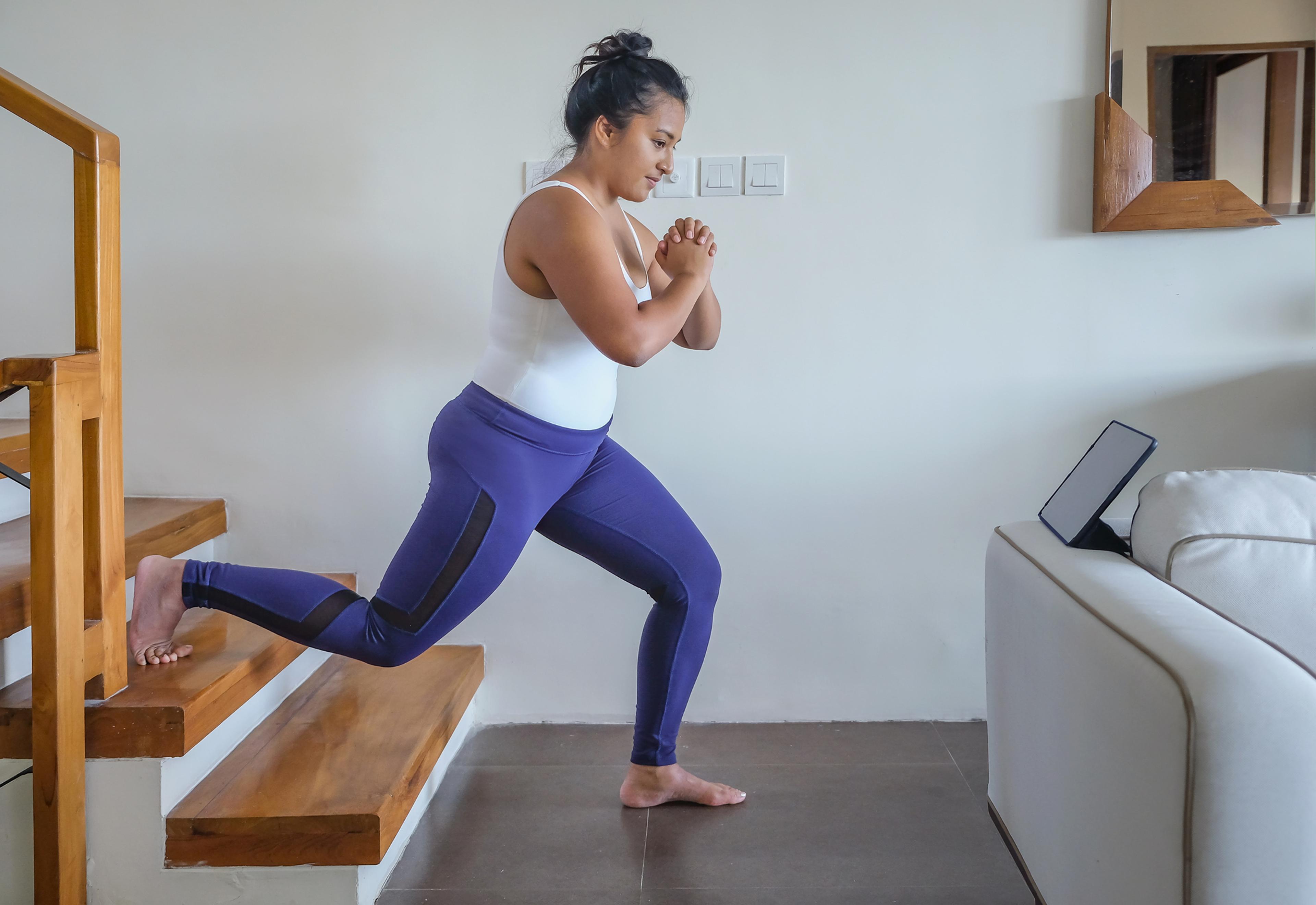The Psychology of Making a Big Lifestyle Change
Amy Barczy
| 7 min read
Amy Barczy is a former brand journalist who authored...

Making changes to our routines is hard – even when it’s for the sake of our long-term health and well-being.
Many of us use the turn of the year and New Year's resolutions to commit to major lifestyle changes. Obviously, you can create steps and develop the habits needed to make a lifestyle change any time of the year. But sticking to those healthy habits while trying to break bad ones can be a major challenge.
But why is changing our behavior to create new healthy habits so hard? What does it take to actually change, and how long does it take to form a habit? We dive into those questions below, with the help of an expert.
Unhealthy habits and chronic conditions
The importance of healthy habits is well documented. Some of the biggest chronic conditions in the U.S. are directly linked to behaviors and lifestyle choices.
Over the years, lifestyle factors like not being active enough, not getting enough sleep, not eating a balanced, nutritious diet, using tobacco products and excessive alcohol use can lead to life-long health issues, according to the U.S. Centers for Disease Control and Prevention (CDC). These can include some chronic conditions like diabetes, heart disease and some cancers.
Along the way, there may be warning signs: obesity, high blood pressure, high cholesterol and elevated blood sugar levels, which can be signs of prediabetes.
Prediabetes can eventually lead to type 2 diabetes – yet, it can be reversed with small lifestyle changes; like losing 5% to 7% of your body weight, according to the CDC. That’s 10 to 14 pounds for a 200-pound person. Additional lifestyle changes can lower your risk of type 2 diabetes by 58%.
Overcoming ourselves
What gets in the way of healthy behaviors? What gets in the way of change?
Often, commitments adults accumulate in their lives can often take precedence over their own health. For others, their lifestyle habits and behaviors stem from what they learned as children. If processed foods and fast foods were the norm growing up, it’s more likely that those behaviors will continue into adulthood. Unlearning these ingrained habits is difficult.
Additionally, for some adults, there are more pressing concerns to provide for themselves and their families, including socioeconomic factors; some people can’t afford to make these lifestyle changes.
In addition to these factors, the hurdles we set for ourselves as we seek to make healthy changes are often so tall it seems often impossible to even begin. Our goals are too big; too intense.
Many people start making lifestyle changes for a short-term goal, like losing weight for a big event. But the short-term goal often comes with a short-term mindset of restricted diet habits and intense exercise – which can’t be sustained for a long period of time.

“We set ourselves up for failure,” said Angela Moore, NASM Master Trainer, Performance Enhancement Specialist (PES), Corrective Exercise Specialist (CES) and Fitness Nutrition Specialist (FNS) through the National Academy of Sports Medicine, as well as a Limited License Professional Counselor. She works with people looking to make healthy lifestyle changes for a living.
“When we first start exercising or restart an exercise program that we stopped, we often do too much which leads to extreme soreness and excessive fatigue which makes exercise extremely uncomfortable. Exercise can at times be uncomfortable but should never be unsafe,” Moore said. “Any exercise program that you choose should be something that you can safely do now and as you move forward in your health journey.”
Moore said people seeking a change need to change their mindset to – “how should I exercise and eat healthy now and for the rest of my life, so I can be healthy always?”
“Until you’re willing to do that, you’re only going to get short-term results,” Moore said.
Creating healthy habits for life
Change can be incredibly uncomfortable. Finding the motivation to change is an important first step.
As Moore works with her clients, she says it’s important for them to identify something that’s significant in their lives so that they stick to their goals.
“It has to be big enough that they’re willing to fight against the times of being uncomfortable,” Moore said.
Making those moments of discomfort manageable is a key part of achieving consistency. Don’t make huge, radical changes. Small changes are the best way to start a new lifestyle habit; start with one day of the new change, and then repeat that every day for at least the next three weeks.
You don’t need to join a gym to start being more physically active. Instead, you can go outside and walk or start walking up and down the stairs for a few minutes each day.
Deciding to live healthier doesn’t look the same for everyone. Moore stresses that if you don’t like going to the gym – or can’t go to the gym – it’s OK: find physical activity that you can be consistent with.
Moore said to start by evaluating your food: what foods do you like, and what healthier versions of that food are available? Then over time, you can slowly transition to options that even healthier.
“Slow and steady applies in so many areas,” Moore said.
And if you don’t have time to cook – or don’t like to cook – you don’t have to become a master chef, Moore said. There are simple meals that can easily be prepared at home that can help you start your journey and continue.
How long does it take to form a habit?
We’ve all heard the saying “it takes three weeks to form a new habit.” But some experts say that’s not necessarily true – because it depends on the amount of pleasure someone gets from their new habit.
Eating ice cream for dinner could easily take a day to become a habit, because it’s highly enjoyable. However, getting up at 6 a.m. to exercise might take longer to feel comfortable as a part of our day-to-day routines. This is why creating consistency with new healthy habits can be the hardest part of the process for many people.
The smaller the new changes are to your routine, the easier it will be to accept them and overcome feelings of discomfort. Because it’s not only about diet and exercise – it’s about making time in your day to make healthier choices possible.
“If your life has not supported eating healthy or working out, it might be best to start by making changes in your schedule,” Moore said. “Schedule in healthy eating; schedule in physical activity. If I have back-to-back appointments, there’s no time to sit down and enjoy my food.”
That could begin by eliminating stresses that cause you to eat unhealthy foods. Additionally, look at your calendar: if you’re over-scheduling yourself – leaving no time for exercise or to have a healthier meal – it may be time to make a change.
“Make the time for your health,” Moore said. “You’re not going to find it. Schedule in your health actions just like the other things you do throughout the day.”
How to form a new habit
- Set a SMART goal: Specific, Measurable, Achievable, Relevant and Time-Bound. Keep goals small so they don’t feel overwhelming.
- Break the goal into smaller steps so it’s less of one big change in your day and more small, incremental changes that lead to the habit you want.
- Find a friend to help you form a habit: An accountability buddy can help you in-person, like meeting up to go for a walk, or can provide virtual support with texts and calls.
- Schedule in time: Use digital reminders on your phone, smart speaker or email calendar, or use a daily calendar to block off the time you need to make the habit happen.
- Reward yourself: Find healthy ways to reward yourself for sticking to your goals. It will help you stay consistent and continue the habit.
Photo credit: Getty Images





